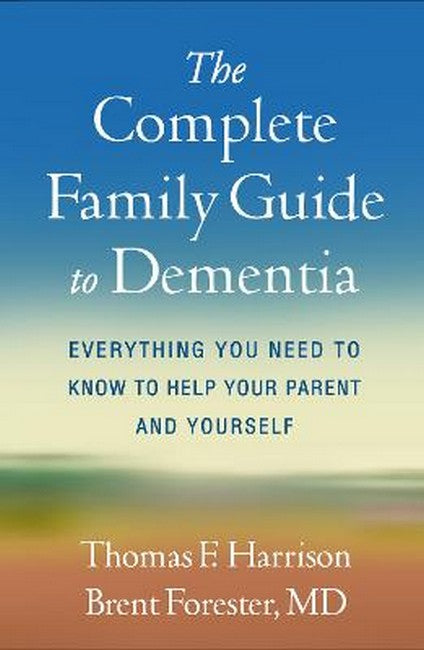Description
Introduction I. Understanding Your Parent's Dementia 1. What Is Dementia? How Is It Different from Just Getting Older? 2. How Can I Know for Sure If My Parent Has Dementia? 3. What Causes Memory Loss: Alzheimer's Disease and the Many Other Causes 4. What You Can Expect: How the Problem Typically Progresses 5. Can Dementia Be Treated to Make It Less Severe? II. Understanding Your New Relationship with Your Parent 6. Why Caring for Parents with Dementia Is So Much Harder than Caring for Parents with Other Diseases 7. The Biggest Mistake Family Members Make 8. Your New Relationship with Your Parent 9. Your Relationship with Your Other Parent or Stepparent 10. Taking Care of Yourself Is Not an Afterthought III. Caring Smarter, Not Harder 11. What It Means to Care Smarter 12. How to Communicate with a Parent with Dementia 13. Avoiding Headaches with Your Parent's Finances 14. When Is It Okay to Lie to Your Parent? 15. Keeping Your Parent Safe at Home 16. Getting Help When Your Parent Lives at Home or with You 17. How to Take Away the Car Keys 18. What Causes Problem Behaviors 19. How to Reduce Problem Behaviors 20. How to Handle Problem Behaviors When They Occur 21. Responding to Your Other Family Members and Friends IV. The Later Stages 22. Moving Your Parent to a Care Facility 23. How to Choose a Care Facility 24. How Am I Going to Pay for All This? 25. Your Relationship with Your Parent in a Care Facility 26. Dealing with the End of Life Resources Notes Index
Thomas F. Harrison is a professional writer and the former editor of a national periodical for attorneys. Based in Massachusetts, he is coauthor of The Complete Family Guide to Dementia and The Complete Family Guide to Addiction. Brent P. Forester, MD, MSc, is Chief of Geriatric Psychiatry at McLean Hospital in Belmont, Massachusetts and Associate Professor of Psychiatry at Harvard Medical School. He is also Medical Director for Behavioral Health Integration at Mass General Brigham, where he leads two system-wide initiatives to enhance clinical care for individuals with dementia while supporting family caregivers. Dr. Forester's award-winning research focuses on developing and testing effective treatments for dementia and mood disorders in older adults.

